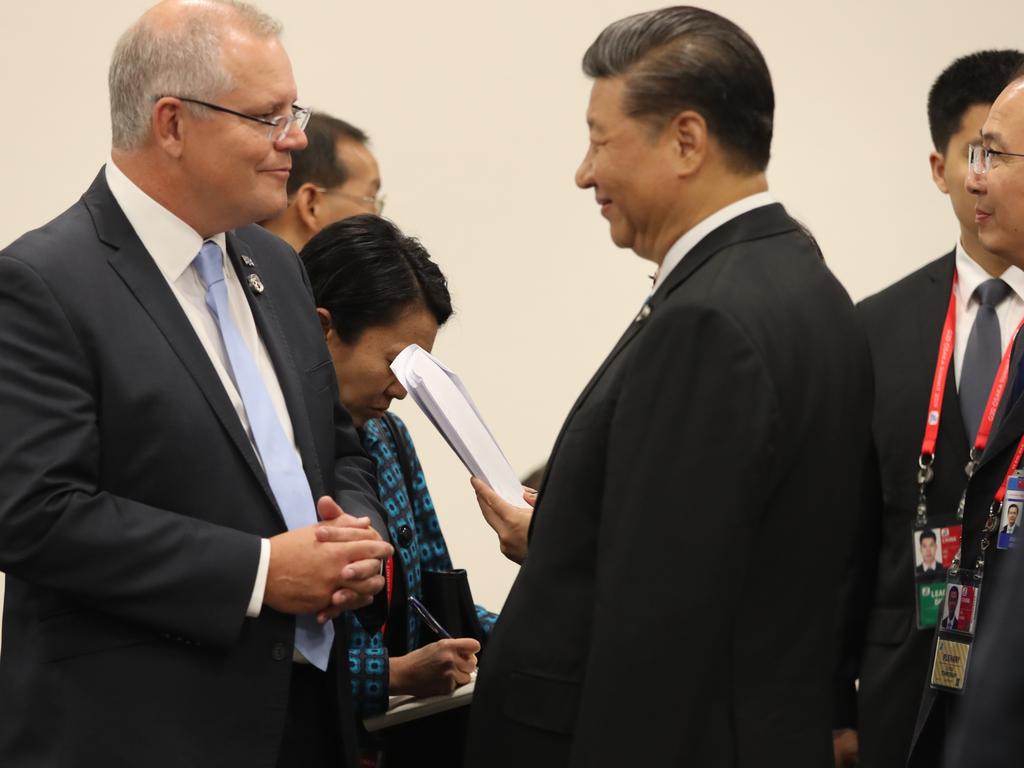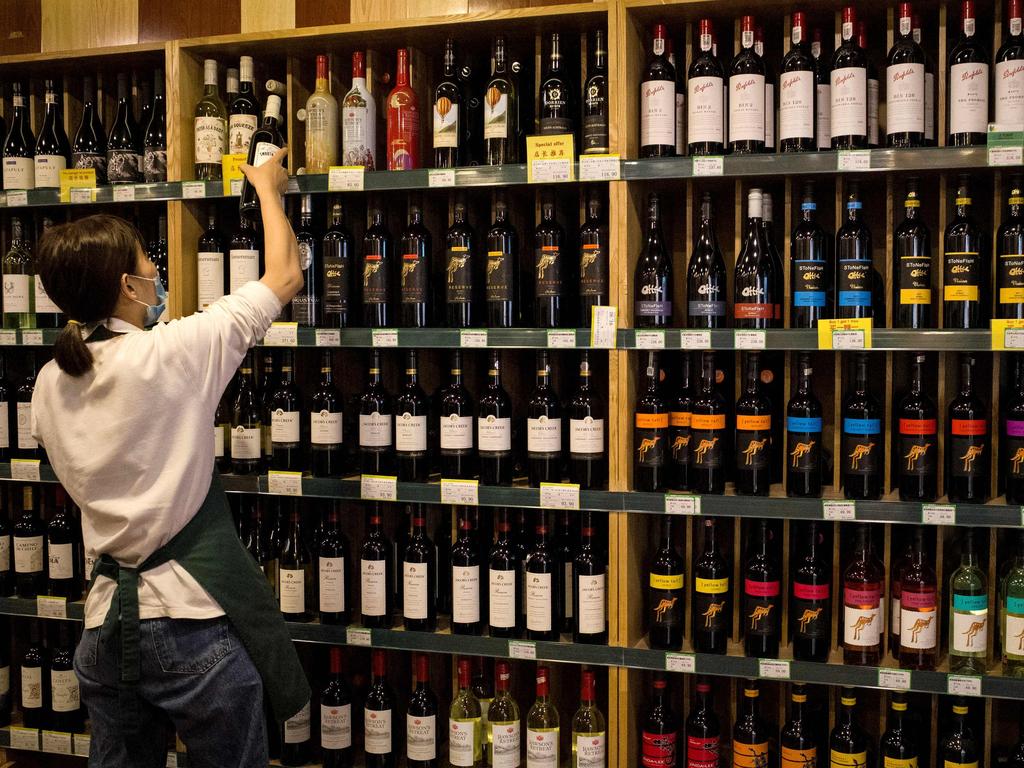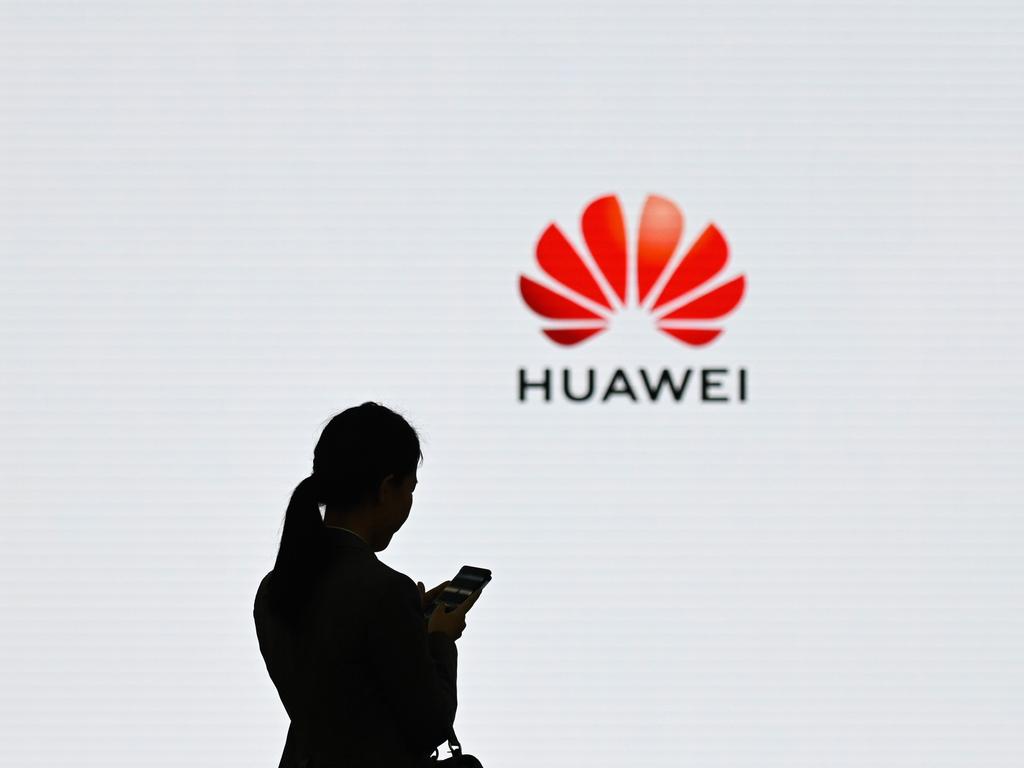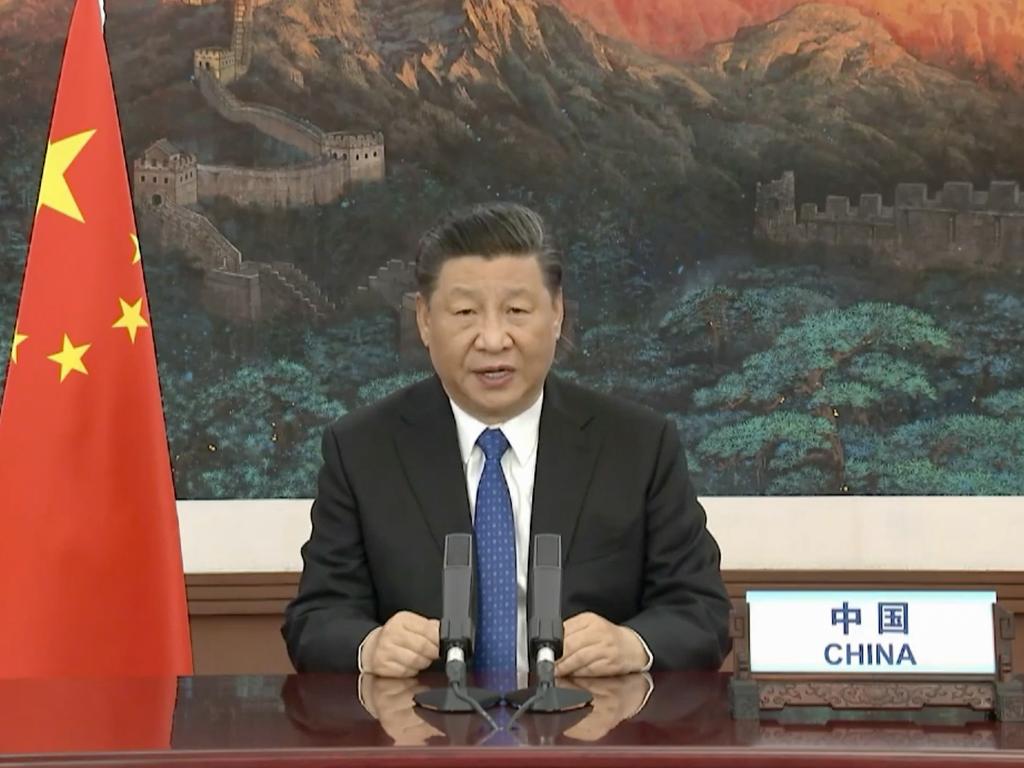Beijing’s bitter wine backlash will have ‘major impact’ on Australian producers
China has defended its move to probe its largest supplier of imported wine, Australia, blaming politicians who “deliberately sabotaged bilateral relations”.
China has defended its probe of the Australian wine industry, claiming it is not a retaliation to “continuous political provocations” or to the actions of Australian politicians who have “deliberately sabotaged bilateral relations”.
On Tuesday, China launched an “anti-dumping investigation” into Australian wine exports, which accuses Australia of flooding China with cheap wine at cost or below cost prices in an effort to skew the market in Australia’s favour.
Almost 40 per cent of Australian wine is exported to China in a $1.25 billion industry. Australia ships more bottles to the country than other wine producing regions such as France, Italy and the US.
An article published on Tuesday in the state-owned Global Times newspaper, widely regarded as the mouthpiece of the Chinese Government, claims the investigation will be conducted “fairly and impartially” and “any measures taken to defend China’s legitimate rights and interests can easily be misinterpreted as a counter-attack” to political provocations from Australia.
“If the market over-interprets this normal remedial measure, it is the Australian side that should take responsibility,” it reads.
“Their provocations have undermined the political foundation of economic and trade exchanges, causing greater shocks than the anti-dumping probe itself could.”
RELATED: ‘Walking on backs’ picture sparks furore


RELATED: Photos show transformation of China’s original virus epicentre
The article states such “continuous” provocations were at the hands of the Morrison Government, after it formally rejected China’s maritime claims in the South China Sea with a message to the United Nations, and South Australian Senator Rex Patrick calling for the Chinese consulate near major naval construction projects in South Australia to close.
“Fundamentally speaking, the current politically hostile atmosphere comes down to the fact that some Australian politicians have deliberately sabotaged bilateral relations by continually creating new friction points with China,” the Global Times piece reads.
“What’s more, they do so without the necessary regard for their economy, which may suffer losses as a result of market panic.”
Federal Trade Minister Simon Birmingham said the investigation was “a very disappointing and perplexing development” from its largest wine importer.
It comes as Australian officials admit they still haven’t spoken to their Chinese counterparts since last year, with Mr Birmingham saying Australia is “willing to sit down no matter how difficult the issue and discuss it in a grown up like way … because that’s what mature nations do”.
‘POTENTIAL TO CAUSE A LOT OF DAMAGE’
China’s announcement has put the Government and Aussie winemakers on edge, with officials and industry groups saying they are confused and worried about what will happen next.
“There’s a lot of Chinese wines that are cheap and pretty decent wines at the low end of the market,” BBC Asia Pacific editor Michael Bristow said.
“This row has great potential to cause a lot of damage to the Australian wine industry,” he said. “It could have a major impact.”
China’s investigation is expected to be completed by August 18, 2021, under normal circumstances, but could be prolonged until February 18, 2022, due to the coronavirus pandemic, a Chinese ministry statement said.
"We will support the Australian Government, and work closely with the grape & wine sector, to cooperate with the investigation and to ultimately resolve this worrying situation." @afsnsw on China’s anti-dumping investigation into Australian wine imports 👉https://t.co/ioRTKf2scl pic.twitter.com/GQpZI3NSfU
— National Farmers' Federation (@NationalFarmers) August 18, 2020
‘RETALIATION FROM BEIJING’
The accusation is the latest in growing tensions between the two countries.
Already this year China has slapped tariffs on Australian barley and suspended some beef exports in what is a significant blow since almost 30 per cent of Australia’s total agricultural exports go to China.
The strained relationship began after Australia pushed for a COVID-19 probe in May, which followed an exchange of insults over escalating trade tensions, leading Australia to be branded a “giant kangaroo that acts as the dog of the US”.
In its most recent statement, China blamed Australia, for “echoing the ‘trade baton’ policy of the US Trump administration” and “was the first Western country to shun Huawei’s 5G equipment”.
“That discrimination against Huawei made Canberra a clear target for retaliation from Beijing,” the Global Times reported.
However experts believe the source of the anger stems from the pandemic probe.
“It’s certainly not too much of a stretch to think that far, that maybe it is an essence of retaliation for Canberra calling for an investigation into coronavirus,” Bristow said.
“This attack on wine is part of a broader economic attack by China on Australia. China has also warned its tourists and students not to travel to Australia and all this came after Canberra called for an independent investigation into the coronavirus outbreak.”
Bristow argued that in the past, China has had diplomatic arguments with South Korea, Taiwan and Norway in a similar vein to Australia and “used its economic muscle, its might, to try and force countries to comply diplomatically with its point of view”.
“It’s certainly not a stretch to think it’s a little bit more than economics.”
Yu Lei, chief researcher at the Research Centre for Pacific Island Countries with Liaocheng University also said the moves can be seen as a warning.
“The trade probe nevertheless launches against a background of intensifying China-Australia tensions. It might be regarded as a stern warning to the Australian Government, which has so far followed the US’ lead in stirring up animosity toward China.”
RELATED: Why iron ore is Australia’s trump card in China tensions


‘BITTERLY DISAPPOINTED’
Rejecting the allegations of wine dumping, Federal Agriculture Minister David Littleproud said: “We are bitterly disappointed.”
Mr Littleproud previously speculated the introduction of barley tariffs was payback for Australia’s support for the investigation into the virus origins.
Earlier this year Mr Birmingham demanded an explanation after reports surfaced that China was preparing a “hit list” of Aussie exports to punish Australian farmers.
Mr Birmingham said Australia won’t engage in a trade war with China but the latest move by Beijing was a deeply troubling and perplexing one.
“What we want is a constructive trading relationship, one where we can work together in the areas of mutual interest,” Mr Birmingham said.
Asked whether he thinks China’s trade strikes are related to the COVID-19 probe, Mr Birmingham said in May: “I can understand why people draw those links. In the end, China denies there’s a link.
“The only thing we can do in defence of our farmers is engage in the process as constructively as we can.”
#auspol #ausag #agchatoz #australianwine pic.twitter.com/Tlm0uuWolC
— David Littleproud (@D_LittleproudMP) August 18, 2020
Mr Birmingham said the country will respond at “face value” to the investigation, while supporting the wine industry.
“We will engage in every level we possibly can. This is a formal process that goes through China’s equivalent of our own anti-dumping commission.
“We will be putting forward the most detailed case we can based on all the evidence we can muster, all of the facts that should all be able to demonstrate very clearly that Australian wine is not subsidised, it is not dumped, it is simply produced at premium levels in quantities and qualities that are in demand overseas.”
Read the full statement from the National Farmers Federation here.
Read related topics:China




